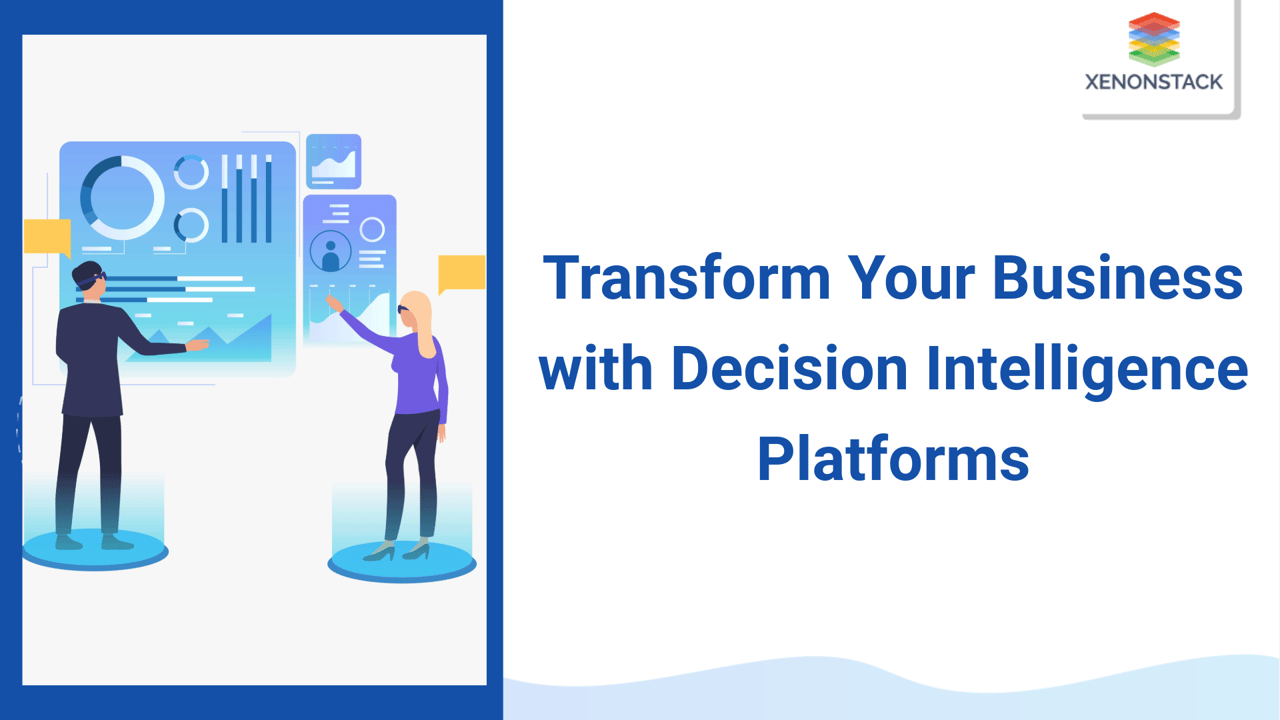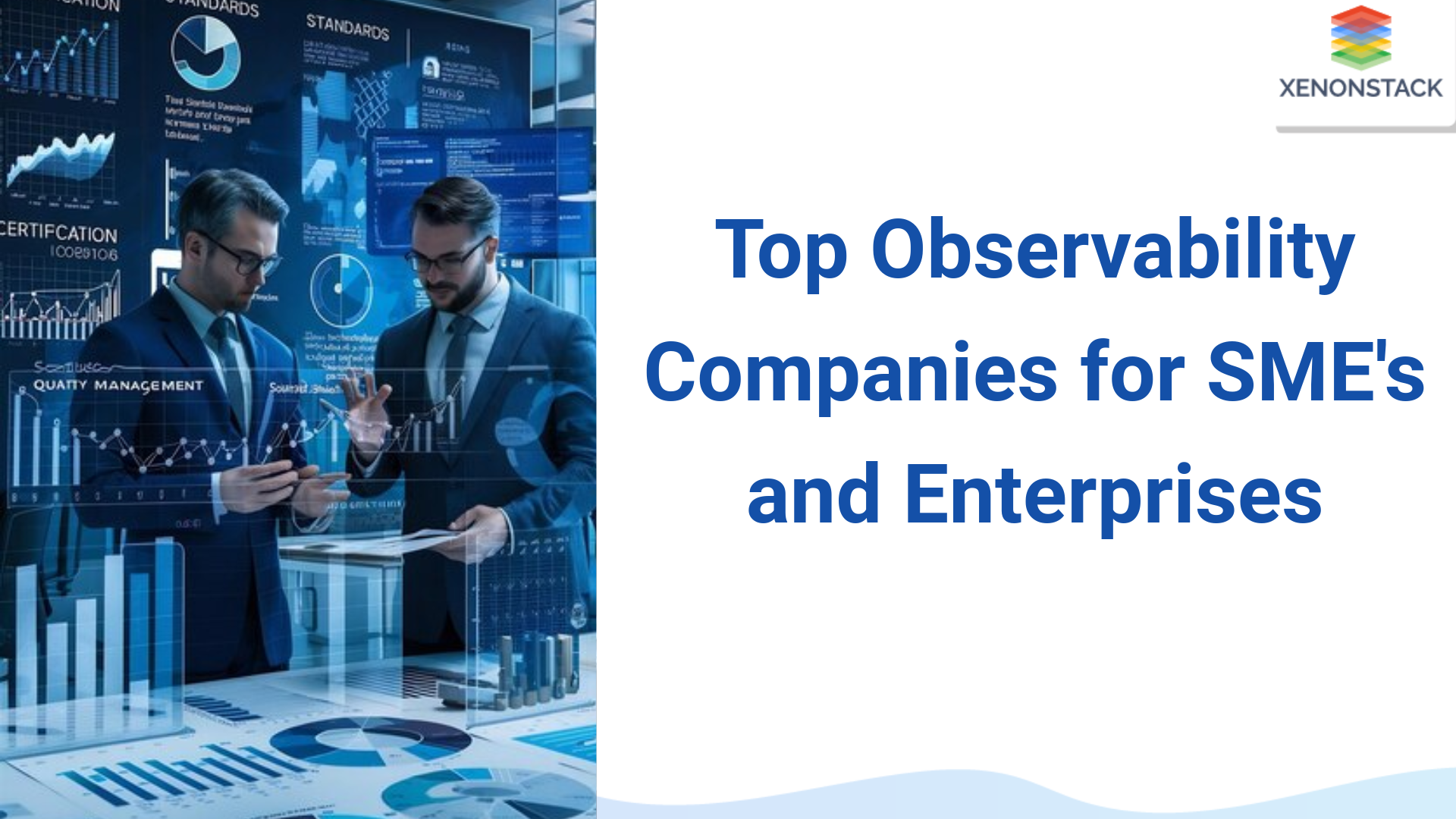
Decision Intelligence (DI) is an emerging field combining data, social, and managerial science to improve decision-making processes. It leverages advanced technologies, including artificial intelligence (AI), machine learning (ML), and data analytics, to provide actionable insights that drive strategic decisions. DI platforms can transform raw data into valuable intelligence for small and medium enterprises (SMEs) and large enterprises, enabling organizations to make informed choices that enhance operational efficiency and competitive advantage.
Importance of Decision Intelligence for SMEs and Enterprises
In today's fast-paced business environment, making quick, data-driven decisions is crucial. SMEs often face limited resources and market competition challenges, while larger enterprises deal with complex datasets and organizational structures. Decision intelligence platforms empower both types of organizations by:
-
Enhancing Data Utilization: By integrating various data sources, DI platforms help organizations harness their data effectively.
-
Improving Predictive Capabilities: Advanced analytics enable businesses to forecast trends and behaviours, allowing proactive decision-making.
-
Streamlining Operations: Automation of routine tasks frees up resources for strategic initiatives.
-
Facilitating Collaboration: DI tools promote cross-departmental collaboration by providing a unified data view.
Key Benefits of Partnering with Development Companies
Collaborating with specialized development companies can significantly enhance the implementation of decision intelligence solutions. The key benefits include:

Expertise in Technology
Development companies bring specialized knowledge in AI, ML, and analytics, ensuring effective integration of DI tools.

Customization
Tailored solutions can be designed to meet specific business needs and objectives.

Ongoing Support
Partnering with development firms provides access to continuous support and updates, ensuring the solution's longevity.
.png?width=512&height=512&name=efficiency%20(1).png)
Cost Efficiency
Outsourcing development can be more cost-effective than building in-house capabilities.
Selection Criteria for Decision Intelligence Platforms
When selecting a decision intelligence platform, organizations should consider several critical factors:
Overview of Key Selection Factors
-
Scalability: The platform should accommodate growth without significant additional costs or complexity.
-
Integration Capabilities: It must easily integrate with existing systems and data sources.
-
User Experience: A user-friendly interface is essential for widespread adoption across the organization.
-
Customization Options: The ability to tailor features according to specific business needs is crucial.
Relevance of Criteria to Business Goals
Aligning the selection criteria with business goals ensures that the chosen platform supports strategic objectives. For instance:
-
If an organization aims to enhance customer engagement, selecting a platform with strong analytics capabilities will be vital.
-
Integration capabilities with existing workflow tools might take precedence for companies focused on operational efficiency.
Top Decision Intelligence Development Companies
For Enterprises
-
Oracle Analytics
Key Offerings: Enterprise-level analytics integrated with ERP and CRM systems. Oracle provides robust decision intelligence (DI) solutions tailored for large-scale organizations. -
SAP Analytics Cloud
Key Offerings: Integrated business intelligence and planning. SAP's cloud-based DI platform enhances collaboration and predictive analytics. -
TIBCO Software
Key Offerings: TIBCO offers real-time data visualization and predictive analytics. It is ideal for enterprises looking for seamless integration of complex data streams. -
IBM Cognos Analytics
Key Offerings: AI-driven business intelligence and data exploration tools. IBM’s DI solutions focus on uncovering actionable insights through advanced analytics. -
Qlik
Key Offerings: Associative data indexing and real-time visualization. Qlik empowers enterprises to make agile, data-driven decisions.
For Small and Medium Enterprises (SMEs)
-
XenonStack
Tailored Solutions: Cost-effective DI platforms for SMEs, focusing on cloud-based analytics and AI-driven insights. XenonStack ensures SMEs can access enterprise-grade DI capabilities within their budget constraints. -
Looker (by Google Cloud)
Tailored Solutions: Modern BI and analytics with seamless Google Cloud integration. Looker is ideal for SMEs leveraging cloud-based infrastructures. -
Board International
Tailored Solutions: Unified BI and corporate performance management tools. The board helps SMEs align analytics with strategic planning goals. -
Sisense
Tailored Solutions: Simplified analytics for complex data with AI capabilities. Sisense enables SMEs to integrate data from multiple sources for actionable insights. -
Klipfolio
Tailored Solutions: Cloud-based dashboards and visualizations. Klipfolio focuses on providing SMEs with accessible and affordable analytics.
For Startups
-
Metabase
Innovative Approaches: Open-source analytics platform. Meta-based allows startups to implement data solutions without high initial costs. -
Mode Analytics
Innovative Approaches: Mode Analytics offers collaborative data exploration and visualization tools, ideal for data-driven startups seeking quick insights. -
Holistic
Innovative Approaches: Self-service data modeling and analytics. Holistics helps startups build robust analytics pipelines with minimal overhead. -
ThoughtSpot Everywhere
Innovative Approaches: Embedded analytics for app developers. ThoughtSpot provides startups with intuitive, AI-driven insights that scale. -
Hex Technologies
Innovative Approaches: Interactive notebooks for data analytics and storytelling. Hex supports startups by enabling real-time collaboration on data projects.
For Government and Federal Agencies
-
Splunk
Compliance Expertise: Real-time monitoring and operational intelligence. Government agencies widely adopt Splunk for cybersecurity and infrastructure analytics. -
Cloudera
Compliance Expertise: Scalable big data and AI platforms. Cloudera supports public sector initiatives with robust data management and compliance. -
Palantir
Compliance Expertise: Advanced data integration and decision support systems. Palantir specializes in aiding government agencies with defence, law enforcement, and public health analytics. -
SAS
Compliance Expertise: Comprehensive analytics solutions for federal compliance. SAS helps agencies derive insights while ensuring data governance. -
Esri
Compliance Expertise: GIS-based analytics for urban planning and disaster management. Esri is a leader in spatial data analytics, supporting government initiatives globally.
Services Offered by Decision Intelligence Companies
-
Business Strategy and Consulting
Companies like Accenture and Deloitte provide strategic consulting services that align decision intelligence initiatives with overall business goals. These services help organizations identify opportunities for improvement based on analytical insights.
-
Technology Consulting
Firms like IBM and Microsoft offer technology consulting services focused on integrating AI technologies into existing systems, ensuring seamless implementation and adoption across the organization.
-
Development and Implementation
Companies like SAP and Salesforce specialize in developing customized decision intelligence solutions tailored to specific industry needs, ensuring effective deployment within client environments.
-
Managed Services
Organizations like Domo provide ongoing support and management services that ensure decision intelligence platforms remain up to date while continuously delivering value through regular updates and enhancements.
How to Select the Right Partner for DI Platforms ?
When choosing a partner for implementing decision intelligence solutions, organizations should consider several key factors:
Consider partners who foster a culture emphasizing continuous learning among employees. This indicates they will stay current with technological advancements impacting your business operations.
Future Trends in Decision Intelligence for Enterprises
-
Hyper-Personalization with AI
Advanced DI tools will leverage AI to deliver hyper-personalized insights tailored to specific business units, enabling granular decision-making at scale. -
Edge Analytics for Real-Time Decisions
Enterprises will adopt edge computing to process data closer to its source, reducing latency and enabling real-time decision-making in industries like manufacturing and logistics. -
AI-Powered Scenario Modeling
Enterprises will increasingly use predictive and prescriptive analytics for scenario planning to navigate market uncertainties, optimize resources, and forecast outcomes more accurately. -
Blockchain for Decision Transparency
Integrating blockchain in DI systems will provide immutable audit trails, ensuring transparency in decision-making processes, especially in finance and supply chains. -
Human-AI Collaboration Platforms
Collaborative tools will emerge, where AI systems suggest decisions, and humans validate them, bridging the gap between automation and oversight.
Next Steps with Decision Intelligence Platforms
Talk to our experts about implementing compound AI systems and how industries and departments use Decision Intelligence Platforms for SMEs and Enterprises to become decision-centric. Utilizes AI to automate and optimize IT support and operations, improving efficiency and responsiveness.


